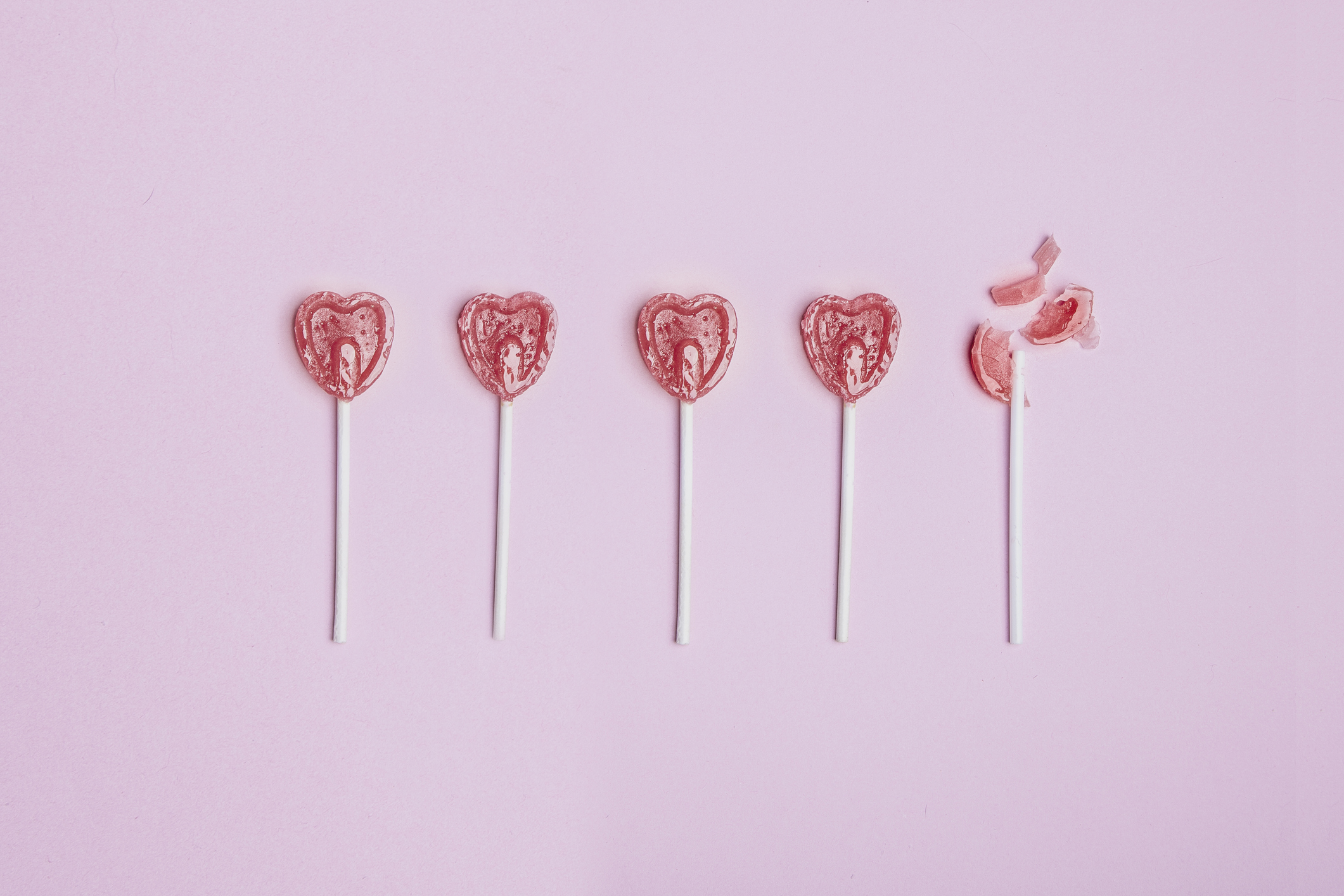
Celebrity news, beauty, fashion advice, and fascinating features, delivered straight to your inbox!
You are now subscribed
Your newsletter sign-up was successful
As Florence Pugh and Zach Braff announce their split.
In celebrity news today, Florence Pugh and Zach Braff have announced that they're breaking up after three years of dating.
Breakups are far from fun, and while each and every break-up will be different, they all have one thing in common: they mark a change in anyone's life.
Change is scary at the best of times, but the overwhelming emotion you can feel after a breakup is one of the most acute. The world as you know it will look different, and re-adjusting to life as a one, not a two, can be triggering.
It's totally normal to struggle mentally after such a big change in your life. But knowing that everyone also experiences heartbreak doesn't make it any less difficult or painful.
That's why we've spoken to four experts to get their top pieces of breakup advice for you - with everything from tips on protecting yourself from depression, chronic stress, and anxiety, to explanations of the stages of grief you'll experience after a separation.
Remember this: you are not alone, and you will get through this. In the meantime - keep scrolling for some expert breakup advice.
Breakup advice: 12 tips for getting over heartbreak
As Caroline Harper, mental health nurse adviser at Bupa UK explains, when we experience a loss, many of us go through a range of emotions. "These can impact your mental and physical wellbeing," she shares. "Stable and fulfilling relationships are likely to help you feel happier, so when you go through a breakup, many of you feel a grief-like sensation – this is completely natural.”
Celebrity news, beauty, fashion advice, and fascinating features, delivered straight to your inbox!
1. Know that grieving for your relationship is normal
Or so says Dee Johnson, therapist at the Priory Hospital Chelmsford. “We should accept that this is a completely normal way of processing any loss, as opposed to pushing it aside or feeling foolish,” she shares. “Some may question why, as it’s not an actual death, they should be grieving, but acceptance is a healthier way to get through this difficult period.”
Sam Owen, Hinge's UK relationship expert, agrees, adding that it's no wonder you feel low as your brain is suddenly deprived of the feel-good chemicals your relationship elicited. Remember this, though: while endings can be hard, they're often essential for your future health and happiness. "Saying goodbye to a whole life you've planned can be quite a shock to the system - but hang in there," she advises.

2. Control the controllable
As Harper points out and we touched on in the intro, a breakup won't only cause you emotional distress but turmoil in other areas of your life, too. Like? "You may have to change your financial or living situations, which can lead to further stress," she explains.
"It’s important to remember that there’s no right or wrong way to feel at the end of a relationship, and each person goes through it in their own way, at their own pace," she recommends. Breakup advice tip number two: focus on controlling what you can control as a coping mechanism and build from there.
3. Know that ending the relationship doesn’t make it pain-free
This one’s important.
"Know that you are allowed to grieve, even if you were the one that made the decision to end the relationship," stresses Johnson. "You may mourn the loss of what was when times were good, the hopes and dreams, right down to grieving what should or could have been if things had been different."
It can actually sometimes feel even more emotionally challenging than being broken up with - as "feelings of relief coupled with the pain of loss are highly confusing" the therapist shares.
4. Understand that it’s normal to physically feel pain
Did you know? People often talk about heartbreak being felt physically, and studies have found that you register the emotional pain of heartbreak in the same way as physical pain.
Physically, Johnson explains that you may experience:
- Crying
- Different types of headaches
- Sleep disturbance
- Exhaustion
- Loss of appetite
- Increase in appetite
- Stomach aches
- General aches and pains
- Actual heart ache.
Why? "Because when under stress and duress, you produce stress hormones, such as cortisol and adrenaline, which may trigger a loss of appetite, sleep difficulties and anxiety, making our muscles naturally more tense and tight," she shares.
Owen agrees, adding that chronic stress can keep your body in fight-or-flight mode for too long and cause pain around the heart area. "Takotsubo syndrome, also known as broken heart syndrome, is now a recognised disease that can cause sudden heart failure, preceded by pain in the chest and heart area, due to acute stress such as that from a difficult break-up," she explains.

5. It's important to feel your emotions in order to heal them
When it comes to breakup advice, research has found suppressing emotions doesn’t work - rather, said emotions just "keep coming back to haunt you," or so says Owen. "On the flip side, reappraising memories in a positive way can help you to move on," she recommends.
Try this: identify and acknowledge every time you suppress a painful memory. Then, make an active effort to move on from it and make it a part of your past, not your present.
6. But don’t spend too much time ruminating
Owen warns that while you do need to feel your emotions in order to heal them, it’s also vital you balance that with not spending time ruminating - or obsessing - over negative events from the past.
"Distract yourself with feel good activities - you could do anything from a gym class, to a hike, to reading a book," she advises.
Try this: look to the past to learn lessons for a better future - it's vital for your personal growth and happiness - but avoid repetitive negative thinking. "Rumination and worry are linked to both anxiety and depression," Owen explains.
7. Engage in lots of self care
On that note - one of the best pieces of breakup advice you can listen to is to make sure you're treating yourself kindly during any separation. As Owen says, it's key to engage in lots of self care, and especially important off potential mental health issues, such as depression or anxiety.
Try the following:
- Go for a hike and surround yourself with nature
- Get eight hours of sleep and practice good sleep hygiene
- Read a book
- Watch your favourite TV programme
- Call a friend.
Or read our guide to the best free self-care ideas, here.

8. You may struggle with your mental health - and this is ok
Relationships breaking down can really challenging, so know that you may experience some mental health issues.
"Feeling in a depressive state can be expected," explains Johnson. Struggling to find any interest or pleasure in things nearly every day over a course of at least two weeks? It could be a sign that you’re depressed, shares Harper. Other symptoms to look out for are:
- Feeling worthless
- Feeling restless
- Feeling agitated
- Finding it difficult to concentrate
- Finding it difficult to make decisions
- Difficulty sleeping
- Loss of appetite.
Anxiety, a sense of feeling lost and stress is inevitable, too. "Big life changes may have to happen," shares Johnson.
Do visit your doctor if you're worried about your mental health. Remember, said issues can have a physical as well as the mental effect on your body and functioning, and the sooner you reach out about how you’re feeling, the sooner you can get the support you need and look to the future.
9. Don’t be afraid to cry
Another important piece of breakup advice? "If you feel safe to do so, let the tears come," shares Johnson. "It can be a good physical release of anger, hurt and fear."
10. Talk, share, reach out
Whether you reach out to friends or seeking professional support, know that your pain is real.
"Never feel foolish seeking help for heartache - you are no less deserving than anyone else needing support for their mental health," shares Johnson. "Plus, ignored or unresolved grief can lead to chronic mental and physical illnesses."
Bottom line: do not dismiss what you are going through. It is real, valid and affecting your life.
For some, using a journal to get their emotions down on paper can be a good first step. "Some people find it very cathartic to then shred or burn what they have put on paper – a deliberate act of taking control and letting go," the therapist adds.
Not a writer? Distracting yourself in another way could help take your mind off things. "Get creative," recommends Johnson. "Stimulation of our brain is vital to physically shutting down the stress hormone release."

11. Don't withdraw socially
This can be all too tempting when you're hurting and want to be left alone, but will only end with you feeling more isolated, shares doctor Deborah Lee of Dr Fox Online Pharmacy.
"When grieving, people tend to withdraw socially," she explains. "Bereavement specialists say that those who do the best coping with grief, and people who are able to distract themselves from what has happened, do it through contact with close family and friends or through work."
Bottom line: Being able to detach from the painful subject may help you not to feel alone, and in turn, help you to be to move on.
12. Identify the five stages of grief
This could help you process the phases you will go through and identify them, when you get there.
The five stages are denial, anger, bargaining, depression and then acceptance, and have been universally adopted as the stages you experience after any tragic or traumatic event - including a relationship breakdown, explains Lee.
"Psychologists are keen to stress that everyone experiences their grief reaction differently, and that these five stages do not necessarily happen one after the other," she shares. The point remains that you will eventually pass through the spectrum of emotions and arrive at an acceptance of what has happened.
As the severity and length of these emotions can vary so much from person to person at each stage, figuring out if what you’re feeling is normal or something more serious can be difficult, shares Harper. But one thing's for sure - you will get through it.
Familiarising yourself with the stages of grief can be a step towards acknowledging and moving on from what's happened to you, share both doctors.

Ally is Marie Claire UK's Senior Health and Sustainability Editor, a well-regarded wellness expert, ten-time marathoner, and Boston Qualifying runner.
Utilising her impressive skillset and exceptional quality of writing, she pens investigative, review and first-person pieces that consistently demonstrate flair and originality.
As well as writing, Ally manages a team of freelancers, oversees all commissioning and strategy for her pillars, and spearheads the brand's annual Women in Sport covers, interviewing and shooting the likes of Mary Earps, Millie Bright, and Ilona Maher. Shortlisted for three BSMEs and winning one in 2022, Ally lives and breathes her verticals: her eye for a story and connections within the wellness sphere are unrivalled. Follow Ally on Instagram for more.
